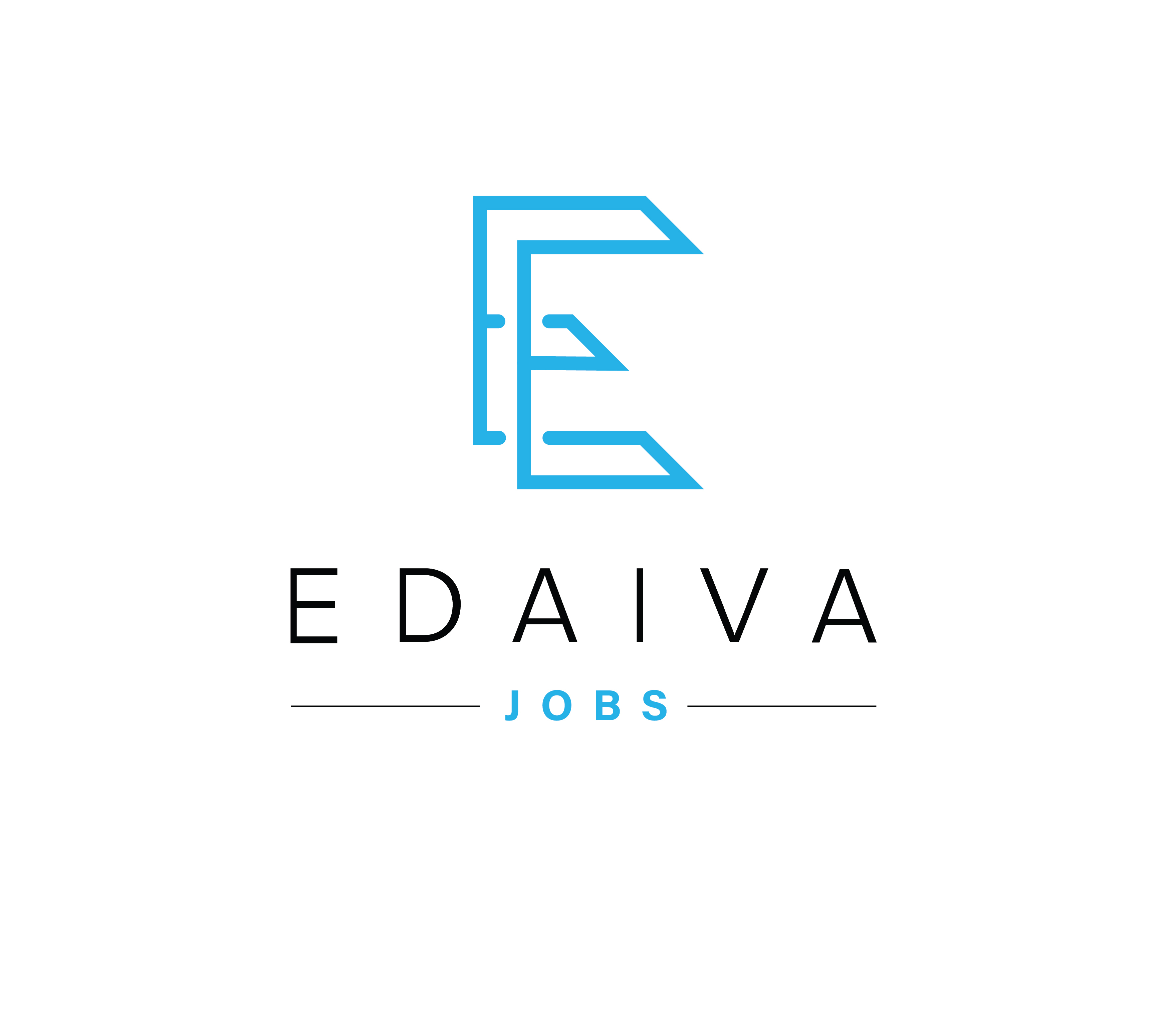BLOGS
14 Ways to Gain Industry Skills as a College Student
By Team Edaiva
Last Updated : Jun 7, 2023

You are at an important time in your academic and professional career as a college student where developing industry-relevant skills can have a big impact on your future career. Developing practical skills while you are in school may offer you a competitive edge and open doors to interesting possibilities, regardless of whether you are following a certain sector or are still exploring alternative areas. We've compiled a wide selection of tactics that can assist you in gaining the relevant skills, contacts, and experience required to succeed in your chosen field. These tactics range from internships and volunteering to online courses and networking events. These suggestions are meant to supplement your college experience and help you make the transition from academic theory to practical application. This blog on “14 Ways to Gain Industry Skills as a College Student” will surely pave the right way for you to gain industry skills while being a full-time college student.
Why should college students consider career advice?
For college students, career counseling is essential because it gives them direction and encouragement as they make decisions about their future. Investigating different sectors, determining their interests, abilities, and beliefs, and matching them with prospective career routes, aids in the clarification of their objectives. Additionally, career guidance directs students towards internships, part-time employment, and skill-building activities and emphasizes the value of obtaining practical skills pertinent to certain sectors. Additionally, it gives students tools for networking, managing the job application process, and adjusting to a shifting employee market.
A College Student's Guide to Developing Industry Skills: 14 Ways How?
As a college student, you must ensure that you have the necessary industrial skills, and there are specific guidelines for doing so. Let's go through the 14 strategies for gaining industry knowledge while being a college student.
- Internships: Internships offer practical experience and exposure to the business. Apply for internships that will help you achieve your professional objectives and let you put what you learn in the classroom to use in practical settings. To get the most out of your studying experience, look for summer and part-time alternatives. Additionally, internships provide you the ability to network with experts in your sector and learn about new prospects.
- Look for new Genres: If you are interested in a field but have never worked in it before, you should always give it some thought when picking an internship program. You should constantly attempt to learn things during internships that you didn't study in college.
- Don't stop there One application: Despite several rejections and failures, you should never give up on your application process. Always do a thorough study and maintain submitting applications to several internships.
- Volunteering: Taking part in volunteer activities in your target field gives you the chance to gain useful skills while having a good influence. Look for volunteer opportunities with charitable organizations, neighborhood improvement schemes, or business-specific programs. Volunteering can enhance your skill set and show your dedication to the industry, whether it's helping with event planning, content development, or data research.
- Research initiatives: You can learn more about your area of interest by working with professors or participating in research initiatives. Make contact with instructors whose research fascinates you and let them know you're willing to participate. Participating in research projects improves your topic knowledge while also honing your analytical, problem-solving, and critical thinking abilities.
- Professional Workshops and Conferences: Participating in workshops and conferences allows you to learn new skills, network with other professionals, and remain current on industry trends. Find events that are pertinent to your industry and sign up early. Take advantage of workshops focusing on professional development or technical skills, such as leadership or communication. Expand your professional network by interacting with the presenters and other participants.
- Long-Term Workshops: A lot of institutions and organizations provide professional courses or workshops that last a year or six months. We encourage you to seek them out if you want to learn more about the topic in-depth.
- Short-Term Workshops: For short-term seminars that last for around a week or so, many incredible colleges and corporations attend. You may take part in those as well to learn from professionals in the field.
- Industry Certificates: Acquiring certificates about your sector shows that you are committed to and knowledgeable about that subject. Find out which certificates are most applicable to your professional objectives by researching those that are recognized in your chosen field. To increase your chances of success, enroll in courses or programs that will prepare you for the certification examinations and dedicate time to careful study.
- Industry-specific Clubs and Organisations: Many institutions offer student clubs and organizations focused on certain industries. You may interact with like-minded people, go to events relating to your field, and take part in skill-building activities by joining these organizations. Take on leadership positions inside these organizations to hone your organizational, project management, and collaboration abilities.
- Part-time Jobs: Look for part-time positions that will help you advance your career and provide you the opportunity to get expertise in a particular field. Look for jobs with businesses or organizations that are associated with your area of interest. Even while these positions might not immediately fit your ideal career path, they frequently offer transferrable skills and industry insights.
- Remote Jobs: If you're searching for part-time employment, you can choose WFH or remote positions. In these positions, you can work a flexible schedule from home while still advancing your professional credentials.
- Hybrid Jobs: These days, numerous part-time positions are offered that need you to work from home some of the time and visit the office on other days.
- Networking Events: Go to meetings of alumni, conferences for your industry, or career fairs. These gatherings offer a great chance to network with industry leaders and possible employers. To build your professional network, practice your elevator pitch, carry copies of your résumé, and strike up meaningful discussions.
- Mentorship Programmes: Look for mentorship programs offered by your college, alumni networks, or professional groups. A mentor may assist you navigate your career path by offering direction, counsel, and industry insights. Establish a close relationship with your mentor and use their knowledge to advance your career.
- Cross-disciplinary Collaboration: Work on projects or initiatives with students from several academic fields. Working with people from different backgrounds allows you to learn new viewpoints and build useful collaboration and communication skills. Look for chances to take part in interdisciplinary activities or join organizations that encourage interdisciplinary cooperation.
- Industry-focused blogs and podcasts: Stay up to speed on the most recent trends, insights, and best practices by following industry-focused blogs and listening to podcasts. Participate in the discussion by posting comments, posing queries, or expressing your viewpoints. This improves your industry knowledge and helps you have a deeper grasp of your subject.
- Cross-cultural Experiences: Take advantage of cross-cultural opportunities such as studying abroad, volunteering in foreign initiatives, or engaging in cultural exchange programs. Your flexibility, cultural sensitivity, and communication abilities are all improved by these encounters. Additionally, they provide you with knowledge of international markets and sectors, which broadens your outlook and increases your marketability.
- Continue Learning: Keep an open mind, look for new chances, and value lifelong learning. Keeping up with the most recent trends, technology, and best practices will provide you with a competitive edge as industries change quickly. To continue developing your knowledge and abilities, read trade periodicals, pay attention to thought leaders, and take part in online forums.
- Create a Professional Online Presence: Create a LinkedIn profile and join groups for your field to develop a professional online presence. Join debates, exchange articles relating to your field, and connect with other experts. LinkedIn may be used as a networking tool, for job searching, and for exhibiting your abilities and achievements.
- Social media: There are a tonne of social media platforms designed for a professional online presence, including Facebook, Twitter, and LinkedIn. You may register for an account on these to maintain a strong social presence.
- Job Portals: You may also register your name with numerous job portals, such as Naukri, Edaiva, Indeed, and others, where you can establish a professional online profile and learn how the market operates.
FAQ
- How can you develop industry knowledge? Ans: It takes a combination of active learning, real-world experience, and continual study to develop industry expertise. Start by immersing yourself in sector-specific materials, including books, journals, and online articles, to build a solid foundational grasp of the fundamental ideas, best practices, and trends. Apply your knowledge and acquire practical insights by becoming involved in hands-on activities like internships, volunteer work, or research projects within the business.
- What are examples of industry knowledge? Ans: Understanding the market dynamics, trends, and competitive environment within a particular industry are examples of industry knowledge. It necessitates familiarity with terminology, laws, and standards unique to the business. It's also essential to be familiar with the key companies, goods or services, and consumer preferences in the market. Understanding the possibilities and difficulties that firms in an industry confront, as well as the new developments and technology that are bringing about change, is another aspect of industry knowledge.
- How can college students gain work experience? Ans: There are several ways for college students to get job experience. One approach is to enroll in co-op or internship programs, which offer practical experience in a context linked to their subject of study and offer hands-on learning. Another choice is to look for part-time employment that, even though they may not be immediately connected, is consistent with their professional ambitions. Volunteering for groups or initiatives associated with their preferred sector might also help them gain useful job experience.
- What are important skills to learn in college? Ans: College students should work to acquire several crucial abilities while they are still in college. First and foremost, it is crucial to have the ability to analyze difficult circumstances, make educated judgments, and come up with creative solutions. Effective verbal and written communication skills are essential for expressing thoughts, working with people, and effectively explaining information. Meeting deadlines, prioritizing projects, and juggling personal and academic duties all need strong time management and organizational abilities.
- Which skills would be considered academic skills? Ans: Academic talents are the aptitudes and expertise required for success in a learning setting. Effective reading comprehension, critical thinking, and the ability to comprehend and analyze academic writings are some of these abilities. To create cohesive essays, reports, and research papers, strong writing abilities are required. Academic abilities also include time management, study methods, and note-taking procedures to enhance learning and academic achievement. Students who are skilled in research and information literacy can find, assess, and use reliable sources.
- Why are skills more important than academics? Ans: Skills are sometimes seen as more significant than academics since they offer individuals practical talents and capabilities that can be employed in real-world settings. Academic knowledge is important, but skills like critical thinking, problem-solving, communication, flexibility, and cooperation are useful in a variety of fields and professions. These abilities help people deal with difficult situations, communicate well, think creatively, and adjust to changing circumstances.
Conclusion
In conclusion, developing industrial skills is essential for your future success as a college student. This article discussed 14 efficient strategies to hone such abilities, including part-time employment, internships, volunteer work, research projects, seminars, conferences, industry certifications, online courses, professional associations, and conferences. You may improve your industry knowledge, accumulate real-world experience, broaden your network, and improve your employability by actively participating in these events and pursuing continuous learning.
